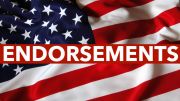The Supreme Court’s Hobby Lobby decision might make it harder for millions of LGBT Americans to access treatment that could revolutionize the fight against HIV/AIDS.
The Supreme Court’s decision in Burwell v. Hobby Lobby Stores, Inc. has sparked debate over whether the court’s opinion grants business owners the right to discriminate against LGBT customers and employees on religious grounds. The decision is already being celebrated by a number of anti-LGBT activists who see it as a license to ignore non-discrimination laws, while some commentators have argued that the decision was tailored to avoid creating a blank check for homophobic business owners.
But the Hobby Lobby decision’s most significant implication for the LGBT community may be its impact on Truvada, a controversial “miracle drug” that blocks HIV infection and may revolutionize the battle against HIV/AIDS. [pullquote]The decision is already being celebrated by a number of anti-LGBT activists who see it as a license to ignore non-discrimination laws, while some commentators have argued that the decision was tailored to avoid creating a blank check for homophobic business owners.[/pullquote]
In May 2014, the Centers for Disease Control and Prevention (CDC) endorsed Truvada, which is a pre-expsure prophylaxis (PrEP) treatment combining two different antiviral drugs, for use by patients deemed at risk for HIV/AIDS. When taken properly, Truvada reduces the risk of HIV by more than 99 percent effective.
Despite its effectiveness, Truvada remains a hotly debated topic in the LGBT community, with critics warning (incorrectly) that Truvada users are more likely to engage in unsafe sex and deriding users as promiscuous and irresponsible.
In April, USA Today noted the similarities between the controversy surrounding Truvada and conservative opposition to birth control:
Demetre Daskalakis, the Mount Sinai doctor, said the Truvada debate recalls the way birth control was viewed in some quarters in the 1960s—as an accessory to promiscuity.
“Anyone who takes Truvada, someone is looking at them and saying they’re licentious,” Daskalakis said. “When this becomes more normalized, we’ll be fine.”
Given the opposition to Truvada even within the gay community, it’s not hard to imagine a religious employer making similar arguments to the ones made in the Hobby Lobby case to justify denying health insurance coverage for Truvada. Lambda Legal warned about this kind of scenario in its Hobby Lobby amicus brief:
Stepping back from the reproductive health context of these cases, imagine how our nation’s workplace standards would be transformed were this Court to embrace the approach the Companies request. Business owners with religious objections to blood transfusion could exempt that life-saving service from their employees’ health coverage. They could selectively exclude coverage for “sinful” medications that control pain, alleviate depression, or manage HIV. Those who believe that all modern medical treatments interfere with Divine will could refuse coverage for all but faith healing. [emphasis added] [pullquote]Business owners with religious objections to blood transfusion could exempt that life-saving service from their employees’ health coverage. They could selectively exclude coverage for “sinful” medications that control pain, alleviate depression, or manage HIV. [/pullquote]
The Hobby Lobby decision attempted to distinguish contraception from other forms of medical treatment, like vaccinations and blood transfusions, but it’s not certain that Truvada would be exempt from the same kind of religious objections Hobby Lobby raised about the contraceptive mandate. As The Advocate explained:
BIRTH control for women is a lot like pre-exposure prophylaxis, or PReP, for gay men, for example. Truvada PReP is a pill taken daily that prevents HIV-negative men from contracting the disease during sex with other men (it can also be used by HIV-negative partners in heterosexual relationships). Hobby Lobby argued that offering coverage for certain types of contraception made them complicit in what amounted to abortion. Obviously, the Christian-owned chain of craft stores is also opposed to gay people having sex with each other, and likely wouldn’t want to be complicit in that, either.
Given how expensive Truvada is – one estimate put the cost at $13,000 a year – it seems plausible that anti-gay religious business owners might find covering Truvada to be a substantial burden. And given that many LGBT people have criticized Truvada for encouraging promiscuity and sexual irresponsibility, it seems likely that these business owners could produce a sincere religious objection to being involved, however indirectly, in gay sex. [pullquote]Hobby Lobby argued that offering coverage for certain types of contraception made them complicit in what amounted to abortion. Obviously, the Christian-owned chain of craft stores is also opposed to gay people having sex with each other, and likely wouldn’t want to be complicit in that, either.[/pullquote]
If the Hobby Lobby decision is expansive enough to implicate employers’ coverage of Truvada, it won’t have only made it harder for women to access contraception; it will have created another roadblock to giving millions of LGBT Americans access to a potentially life-saving treatment.
Media Matters for America is a Web-based, not-for-profit, 501(c)(3) progressive research and information center dedicated to comprehensively monitoring, analyzing, and correcting conservative misinformation in the U.S. media.
[From a News Release]








